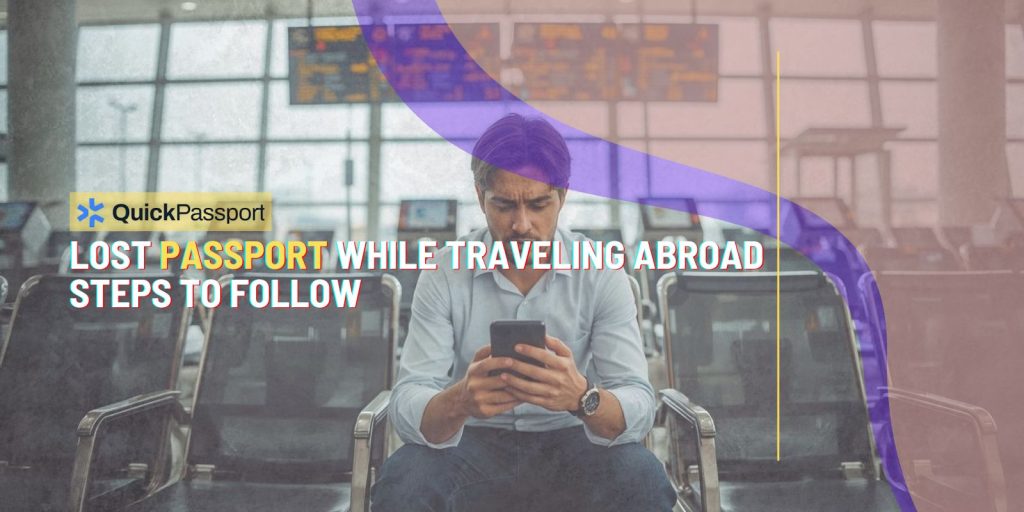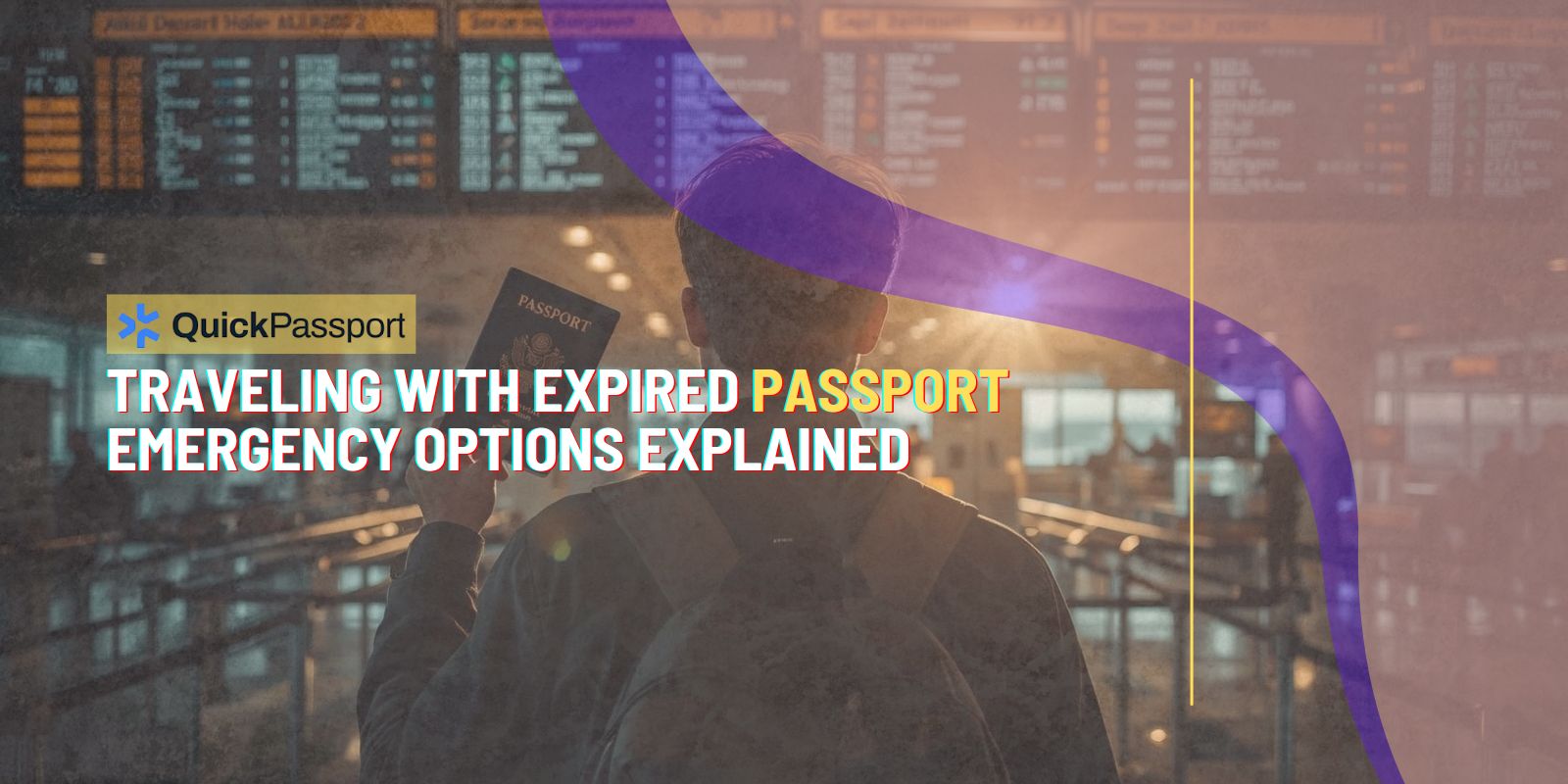Discovering that your passport is lost while traveling abroad can be one of the most stressful experiences any traveler can face. Whether you’ve misplaced it, had it stolen, or accidentally damaged it beyond recognition, losing your passport in a foreign country creates immediate concerns about your safety, legal status, and ability to return home. The good news is that there are established procedures and resources available to help you navigate this challenging situation and get back on track.
When you realize your passport is missing, your first instinct might be panic, but taking systematic steps will help resolve the situation more efficiently. Every year, thousands of American travelers find themselves in this predicament, and U.S. embassies and consulates worldwide are well-equipped to assist citizens who have lost their travel documents. Understanding the proper steps to take can mean the difference between a minor travel inconvenience and a prolonged ordeal that could affect your safety and travel plans.
The process of replacing a lost passport abroad involves several critical steps that must be completed in the correct order. From immediately securing your safety and reporting the loss to local authorities, to gathering necessary documentation and visiting the nearest U.S. embassy or consulate, each step plays a vital role in ensuring you can obtain emergency travel documents or a replacement passport as quickly as possible.
Time is often of the essence when dealing with a lost passport abroad, especially if you have upcoming flights or are in a country where overstaying your visa could result in legal complications. The sooner you begin the replacement process, the better your chances of minimizing disruption to your travel plans. Additionally, having a clear understanding of what documents you’ll need, what fees are involved, and how long the process typically takes will help you make informed decisions about your next steps.
Prevention is always better than cure, and understanding how to protect your passport while traveling can help you avoid this situation altogether. However, when prevention fails, knowing exactly what to do when you discover your passport is missing will help you handle the crisis with confidence and efficiency.
Key Takeaways
- Act immediately: Report the loss to local police and contact the nearest U.S. embassy or consulate as soon as you discover your passport is missing. Time-sensitive action can prevent identity theft and expedite the replacement process.
- Gather essential documents: Collect any backup identification, passport copies, travel itineraries, and proof of U.S. citizenship you may have. These documents will significantly speed up the replacement process.
- File a police report: Most countries require a police report for lost or stolen passports, and U.S. consular services often request this documentation before issuing replacement travel documents.
- Contact your embassy immediately: U.S. embassies and consulates provide emergency passport services for citizens abroad. They can issue emergency travel documents or expedited passport replacements depending on your situation.
- Prepare for fees and processing time: Emergency passport services come with specific fees, and processing times can vary from same-day service to several business days depending on your location and circumstances.
- Consider emergency travel documents: If you need to travel immediately, an emergency travel document may be issued more quickly than a full passport replacement, though it has limited validity and usage.
- Notify relevant parties: Inform your travel insurance company, airline, hotel, and family members about the situation. They may be able to provide assistance or adjust your travel arrangements.
- Take preventive measures: For future travel, maintain digital and physical copies of your passport, use hotel safes, and consider carrying backup identification to avoid similar situations.
Understanding the Immediate Impact of a Lost Passport Abroad
When your passport goes missing while traveling internationally, the implications extend far beyond simply losing a travel document. Your passport serves as your primary form of identification and proof of citizenship, making it essential for hotel check-ins, currency exchanges, domestic flights, and most importantly, your legal right to remain in the country you’re visiting. Without it, you may find yourself unable to access basic services or prove your identity to local authorities.
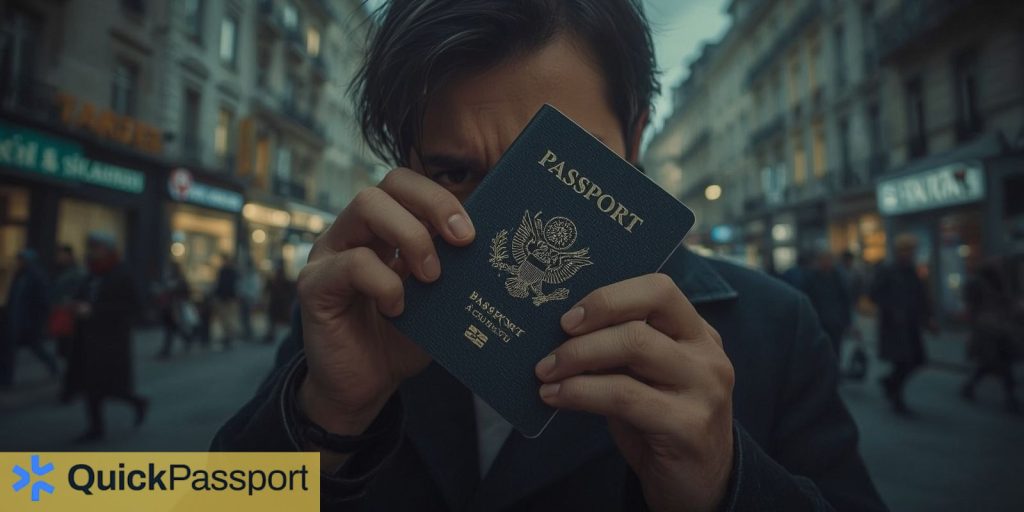
The legal ramifications of not having proper documentation vary significantly from country to country. In some nations, carrying identification is legally required at all times, and being unable to produce proper documentation when requested by authorities can result in detention or fines. Additionally, if your visa was stamped in your lost passport, you may need to provide evidence of your legal entry into the country, which can complicate your situation further.
From a practical standpoint, many everyday activities become challenging without proper identification. Banks may refuse currency exchanges, hotels might not allow check-ins or room access, and domestic transportation options could be limited. Even simple tasks like picking up packages or accessing certain tourist attractions may become impossible without valid identification.
The emotional impact shouldn’t be underestimated either. Losing your passport in an unfamiliar country can trigger significant anxiety and stress, especially if language barriers make communication difficult. This emotional strain can cloud judgment and make it harder to take the systematic approach necessary to resolve the situation efficiently. Understanding that this is a common occurrence and that there are established procedures to help can provide some comfort during this stressful time.
Immediate Steps to Take When You Discover Your Passport Is Missing
The moment you realize your passport is lost or stolen, your response in the first few hours can significantly impact how quickly and smoothly the replacement process goes. Your immediate priority should be ensuring your personal safety and preventing potential identity theft. If you suspect your passport was stolen rather than simply misplaced, consider whether other valuable items or documents were taken, as this might indicate a broader security threat.
Begin by thoroughly searching all possible locations where your passport might be. Check your hotel room, including less obvious places like between mattresses, in bathroom areas, or mixed in with other papers. Contact any restaurants, shops, transportation services, or tourist attractions you visited recently. Many establishments have lost and found departments, and passports are commonly turned in by honest individuals who find them.
If your search proves unsuccessful, immediately contact local law enforcement to file a police report. This step is crucial for several reasons: it creates an official record of the loss, helps prevent someone else from using your passport illegally, and provides documentation that U.S. consular services typically require before issuing replacement documents. When filing the report, be as specific as possible about when and where you last remember having your passport.
Simultaneously, reach out to the nearest U.S. embassy or consulate. Most diplomatic missions have emergency contact numbers available 24/7 for situations exactly like this. Even if the office isn’t open, emergency services can provide immediate guidance and help you understand what steps to take next. They can also advise you about any specific local requirements or procedures that might apply in your current location.
Document everything related to the loss and your efforts to replace the passport. Take photos of any police reports, keep receipts for any expenses related to the replacement process, and maintain a record of all phone calls and conversations with embassy personnel. This documentation may be useful for insurance claims or if complications arise during the replacement process.
Navigating Embassy and Consular Services for Passport Replacement
U.S. embassies and consulates are your primary resource for obtaining replacement travel documents when abroad. These diplomatic missions are specifically equipped to handle passport emergencies and have streamlined processes designed to help American citizens in distress. Understanding how these services work and what to expect can help you navigate the replacement process more effectively.
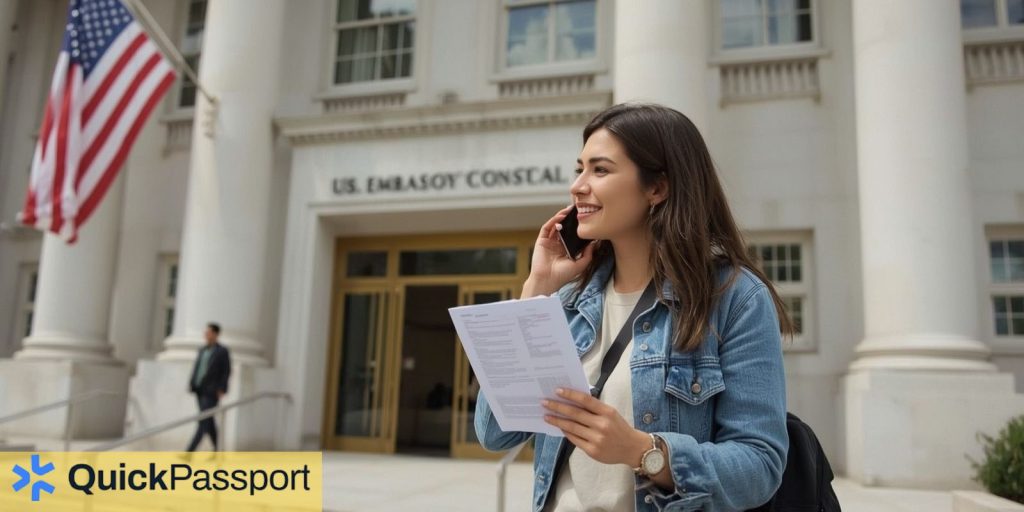
When you contact the embassy or consulate, you’ll typically be scheduled for an appointment, though emergency situations may warrant immediate attention. During this appointment, consular officers will verify your identity and citizenship through various means, including questioning about your background, reviewing any documentation you can provide, and potentially contacting family members or employers in the United States for verification.
The type of replacement document you receive depends on your specific circumstances and travel needs. If you need to travel immediately due to an emergency, you may be issued an Emergency Travel Document (ETD), which is a temporary passport valid for direct travel to the United States or to another country where you can obtain a full passport replacement. For less urgent situations, you may receive an expedited full passport replacement, which takes longer but provides a complete travel document.
Embassy personnel can also assist with other challenges that may arise from losing your passport. They can help you contact family members in the United States, provide information about local legal requirements, assist with communication with local authorities, and even help arrange emergency financial assistance in extreme circumstances. These additional services can be invaluable when you’re dealing with the stress and complications of being without proper documentation in a foreign country.
It’s important to understand that consular services operate under specific guidelines and limitations. They cannot provide legal representation if you’re arrested, cannot guarantee expedited processing beyond standard emergency procedures, and cannot waive fees except in very specific circumstances. However, they are committed to helping American citizens resolve their documentation issues as quickly and efficiently as possible.
Required Documentation and Fees for Emergency Passport Services
Obtaining a replacement passport abroad requires specific documentation to prove your identity and U.S. citizenship. While losing your primary identification creates obvious challenges, there are several alternative documents that consular officers can accept to verify your identity. Understanding what documentation is acceptable and gathering whatever you have available will significantly expedite the replacement process.
Primary forms of acceptable identification include a driver’s license, state-issued ID card, military ID, or any other government-issued photo identification. If you don’t have these physical documents, digital copies stored on your phone or in cloud storage can be helpful, though physical documents are strongly preferred. Additionally, any expired U.S. passports, even if significantly outdated, can serve as valuable supporting documentation.
Proof of U.S. citizenship is another critical requirement that can be satisfied through various documents. A certified copy of your birth certificate is the most common form of citizenship proof, but naturalization certificates, consular reports of birth abroad, or previous U.S. passports can also serve this purpose. If you don’t have physical copies, having digital photos or scans of these documents can help consular officers verify your information through government databases.
Supporting documentation that can help expedite the process includes your travel itinerary, hotel confirmations, flight tickets, and any other papers that establish your legitimate presence in the country. These documents help consular officers understand your situation and may influence the type of replacement document they issue. Travel insurance information can also be relevant, as some policies cover expenses related to lost passport replacement.
The fees for emergency passport services vary depending on the type of document you need and how quickly you need it. As of current rates, an emergency travel document typically costs around $140, while an expedited passport replacement can cost $130 for the passport plus $60 for expedited processing. Additional fees may apply for after-hours or weekend services. Payment methods are usually limited to cash or money orders, so be prepared to arrange appropriate payment.
Processing times depend on your location and the type of service requested. Emergency travel documents can sometimes be issued the same day, while expedited passport replacements typically take 2-3 business days. In some remote locations or during peak travel seasons, processing may take longer. Consular officers will provide realistic timeframes based on your specific situation and location.
Prevention Strategies and Best Practices for Future Travel
While knowing how to handle a lost passport abroad is important, implementing effective prevention strategies can help you avoid this stressful situation altogether. Smart preparation and careful handling of your travel documents significantly reduce the risk of loss or theft while traveling internationally.
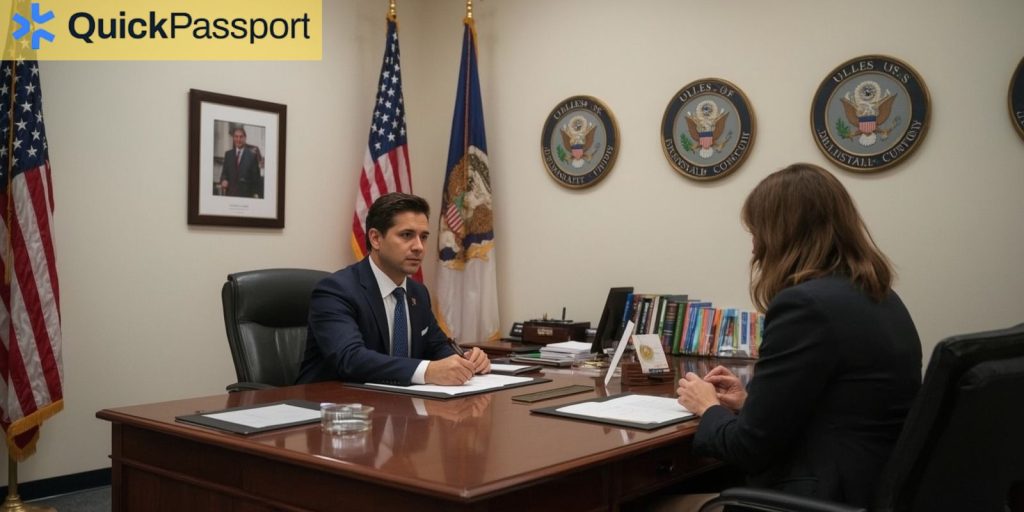
Creating multiple copies of your passport is one of the most effective prevention strategies. Make several photocopies of your passport’s information page and store them separately from your actual passport. Additionally, create digital copies by photographing or scanning your passport and storing these images in cloud storage services that you can access from anywhere. Email copies to yourself and trusted family members who can send them to you if needed.
Secure storage practices while traveling are crucial for protecting your passport. Use hotel safes whenever available, and never leave your passport unattended in hotel rooms, vehicles, or public spaces. When you must carry your passport, use a money belt, hidden pocket, or secure travel wallet that stays close to your body. Avoid displaying your passport unnecessarily, and put it away immediately after showing it for identification purposes.
Consider carrying alternative forms of identification that can serve as backup if your passport goes missing. A driver’s license, state ID card, or certified copy of your birth certificate stored separately from your passport can be invaluable if you need to prove your identity while waiting for passport replacement. Some travelers also carry a second passport if they qualify for one, though this requires special circumstances and additional applications.
Technology can also help protect your travel documents. Smartphone apps can store secure digital copies of important documents, and some travel insurance companies offer digital document storage services. GPS tracking devices designed for travel documents are also available, though they add bulk and aren’t foolproof against determined thieves.
Understanding the specific risks in your destination country can help you take appropriate precautions. Research common theft tactics, identify areas where pickpocketing is prevalent, and learn about local customs regarding document storage and presentation. Some countries have higher rates of passport theft targeting tourists, and being aware of these risks allows you to take extra precautions.
QuickPassport – Arlington can help you prepare for international travel by ensuring your passport is up to date and providing guidance on document security best practices. Their experienced staff understands the challenges travelers face and can offer personalized advice based on your specific travel plans and destinations.
Frequently Asked Questions
How long does it take to get a replacement passport at a U.S. embassy abroad?
The processing time varies depending on your location and the type of replacement document needed. Emergency travel documents can sometimes be issued the same day, while expedited passport replacements typically take 2-3 business days. Remote locations may require longer processing times.
Can I travel with an emergency travel document instead of a full passport?
Yes, an Emergency Travel Document (ETD) allows you to travel, but it has limitations. It’s typically valid for direct travel to the United States or to another country where you can obtain a full passport replacement. Some countries may not accept ETDs for entry.
What if I don’t have any backup identification documents with me?
Consular officers can verify your identity through other means, including detailed questioning about your background, contacting family members or employers in the United States, and checking government databases. The process may take longer, but replacement documents can still be issued.
How much does it cost to replace a lost passport abroad?
Fees vary by service type. Emergency travel documents typically cost around $140, while expedited passport replacements cost approximately $190 ($130 for the passport plus $60 for expedited processing). Additional fees may apply for after-hours services.
Should I cancel my trip if I lose my passport abroad?
Not necessarily. Many travelers successfully obtain replacement documents and continue their trips with minimal disruption. Contact the nearest U.S. embassy or consulate immediately to understand your options and the realistic timeframe for obtaining replacement documents.
Will losing my passport abroad affect future travel or passport applications?
Losing a passport abroad typically doesn’t affect future applications, but you’ll need to report the loss on future passport applications. Multiple passport losses may trigger additional scrutiny, but single incidents are common and generally don’t cause long-term issues.
Can my travel insurance cover the costs of replacing a lost passport?
Many travel insurance policies include coverage for lost passport replacement costs, including fees, emergency accommodation, and transportation to embassies. Review your policy details and contact your insurance provider to understand your coverage.
What should I do if my passport was stolen along with other important items?
File a comprehensive police report covering all stolen items, contact your bank and credit card companies to report stolen cards, and notify the embassy about the theft. Consider whether the theft indicates broader security concerns that might affect your safety.
Conclusion
Losing your passport while traveling abroad is undoubtedly stressful, but it’s a manageable situation when you know the proper steps to take. The key to successfully navigating this challenge lies in acting quickly, staying organized, and working closely with U.S. embassy or consular services. Remember that thousands of American travelers face this situation every year, and diplomatic missions are well-equipped to help you obtain replacement documents and get back to your travel plans.
The most important takeaway is that preparation significantly improves your ability to handle passport loss efficiently. Maintaining copies of important documents, understanding the resources available to you abroad, and knowing the basic steps of the replacement process can transform a potential travel disaster into a manageable inconvenience. While the experience may be stressful, most travelers find that they can obtain replacement documents within a few days and continue their journeys with minimal long-term impact.
Prevention remains your best strategy for avoiding the complications of a lost passport abroad. Simple practices like using hotel safes, carrying backup identification, and maintaining digital copies of important documents can save you significant time, money, and stress. However, when prevention fails, knowing that help is available and understanding how to access it provides peace of mind and practical solutions.
For future travel planning and passport services, QuickPassport – Arlington offers expert assistance to ensure your travel documents are properly prepared and up to date before you depart. Their knowledgeable staff can provide guidance on document security, renewal timing, and preparation strategies that help prevent passport-related travel complications.

